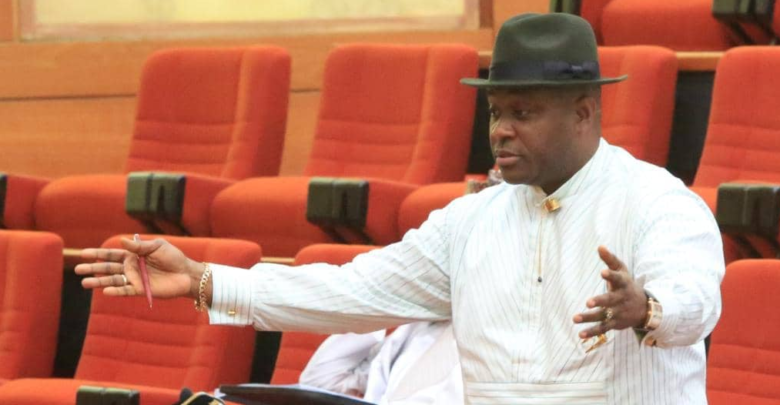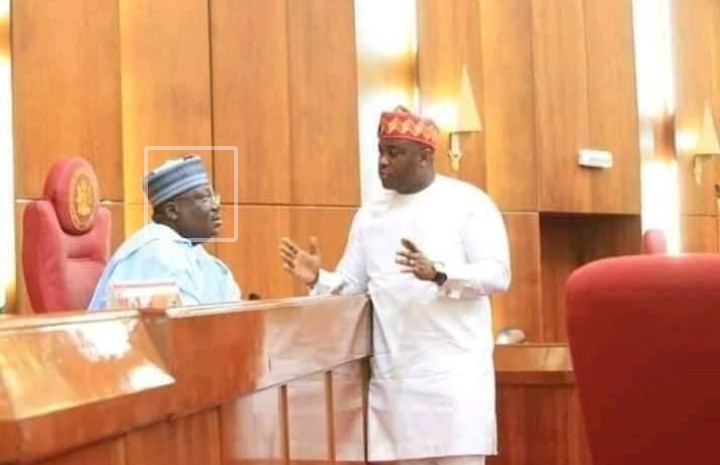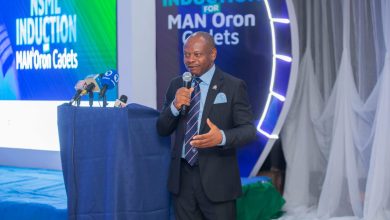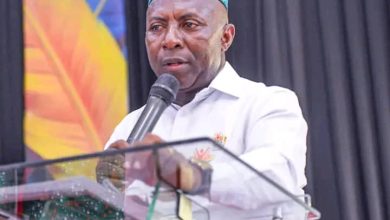
Reactions have not waned, copious days after the Petroleum Industry Bill (PIB) was passed by Nigeria’s bicameral National Assembly. The Bill, which has been in the works for 20 years, is expected to kick-start genuine reforms in Nigeria’s oil and gas industry.
Conceived during Chief Olusegun Obasanjo’s tenure as President, when an Oil and Gas Reforms Committee (OGRC) was set up to among other tasks, review and find lasting solutions to issues bordering on the sector, a foundation was laid for a tedious but necessary rejig of the industry.
The Obasanjo presidency soon elapsed, passing the baton to Umaru Musa Yar’Adua. The Yar’Adua presidency pushed the Bill to the Senate and House of Representatives in 2008. Its introduction elicited a mixed grill of affection and disaffection from legislators. Ethnic card bared its fangs, legislative red tapism reared its head, and action was consequently stayed on the Bill.

When President Goodluck Jonathan reintroduced it to the National Assembly in 2012, the Bill succeeded to get the nod of the House of Representatives, but the Senate declined its passage following inconclusive debates.
Related: Senator Bassey Albert’s Prolific Legislative Feats
Incumbent President Muhammadu Buhari has twice declined assent to the Bill. The National Assembly received the current revised version in September 2020, which has four major parts namely: fiscal, administration, governance/institutions & host communities components.
The National Assembly exercised its discretion to perform what I choose to call a ‘legislative surgery’ on the Bill. The Bill passed through stringent scrutiny. It was not adopted hook, line and sinker as sent by the presidency.
Given the foregoing, it is safe to assume that the president may decline signing it into Law, as witnessed twice, previously. It is thought that the present National Assembly lack the clout to exercise its power to override the veto power of the president, should he decline signing the document.
But Senator Bassey Albert Akpan, chairman, Senate Committee on Petroleum Resources (Upstream), who co-chaired the Joint Committee on Petroleum, which handled the Bill, dispelled such fears on the heels of the historic passage. His words: “the President has assured us that he will sign the document into law once it is sent to him.”
Commenting on the significance of the Bill, Senator Albert, representing Akwa Ibom North East, who has also sponsored the Petroleum Industry Administration Bill, and the Gas Flaring Prohibition and Punishment Bill, waxed enthusiastically: “This is victory to every Nigerian, every Niger Delta person and the oil and gas industry. We are now ready to receive the much expected inflow of investment into the Niger Delta region and Nigeria in general.”
Related: Senator Albert Akpan: A Centripetal Protagonist of PIB
To further push for presidential assent of the Bill, the Senate has set up a seven-member committee tasked to work with its House of Representatives counterpart to harmonise the two slightly different versions of the PIB.
News report has it that the committee is chaired by Yahaya Abdullahi, Senate majority leader, while Senators Bassey Albert Akpan, Mohammed Sabo, Danjuma Goje, Opeyemi Bamidele, Stella Oduah and Gabriel Suswam are members.
Senate President Ahmed Lawan urged them to “swing into action immediately, so that we are able to have the final document of the PIB which we will transmit for the presidential assent.”
A similar committee in the House of Representatives has Rt. Hon. Mohammed Monguno as chairman, while Hon. Victor Nwokolo and others are members. Speaker of the House of Representatives, Rt. Hon. Femi Gbajabiamila had hailed the Parliament for the passage of the bill, describing it as significant in the history of the Nigerian parliament.
Read Also: N82Billion Judgment Debt: Ibeno Inaugurates Oil Spillage Management Committee
As the National legislature continue pushing for the implementation of the proposed Law, commendations must be duly sent to both parliaments for a job well done. Many had lost hope on its passage when legislators failed to agree on percentages to be given to host communities. The section has been the most controversial part of the bill. Plenaries and even public hearings on the issue often degenerated into fisticuffs. The House of Representatives arrived at 5 per cent benefits to host communities. The Senate had proposed same, but Senator Sani Kaita from Katsina State moved an amendment for it to be reduced to 3 per cent. The 3 per cent was eventually adopted amidst chaos. Apart from the 5 per cent and 3 per cent derivation, the host community can also take grants, donations, gifts, honoraria and profits and interest from their investment.
Industry observers and a cross section of host communities have hailed the PIB, but have also decried the “paltry” 3 per cent and 5 per cent equity shares given to them. They want an upward review of that particular clause in the Bill.
The Southern Governors Forum also rejected the proposed 3 per cent share, calling for revert to the 5 per cent proposed earlier in the Senate.
Wading into the percentage issue, Minister of Niger Delta Affairs, Senator Godswill Akpabio advised the National Assembly not to allow the percentage debate to delay the assent of the Bill.
Speaking at a recent town hall meeting on the “Destruction of Oil Pipelines and Gas infrastructure,” organized by the Ministry of Information and Culture at the NAF Conference Center, Abuja, Akpabio pleaded: “Let me appeal to my former colleagues in the National Assembly to pass the PIB Bill into law so that the people of the region will begin to have a new lease of life. Let them not allow the argument on the percentage to delay the passage of the bill. Whatever you agree on, we will accept. At least, let us start from somewhere.”
To Akpabio and others who align with such school of thought, the PIB will act as a springboard for further reforms in the Oil and Gas industry, hence the importance of it being allowed to sail through despite few perceived weaknesses. The baby should not be thrown away with the bath water, it is reasoned.
The tedious task of passing the PIB was always expected to trigger tons of controversies. The courage exhibited by the current National Assembly in addressing the matter has, however, earned more plaudits than condemnations.
Both the upper and lower chambers of the National Assembly passed the Bill after clause by clause consideration of the report of its Joint Committees on Petroleum (Upstream, Downstream and Gas). It must be acknowledged that the painstaking reviews and field work done by the joint committees contributed greatly to the successes attained on the PIB. The Senate team had Senator Bassey Albert Akpan (Petroleum -Upstream), Senator Dabo Mohammed (Petroleum -Downstream), and Senator James Manager (Gas Resources).
The House of Representatives team had: Rt. Hon. Musa Adar (Petroleum – Upstream), Rt. Hon. Mahmud Gaiya (Petroleum -Downstream), and Hon. Nicolas Mutuh (Gas Resources). They are the midwives of the PIB which lay in the womb of the National Assembly for about 20 years. They will never be forgotten. Their act too shall never be forgotten.




